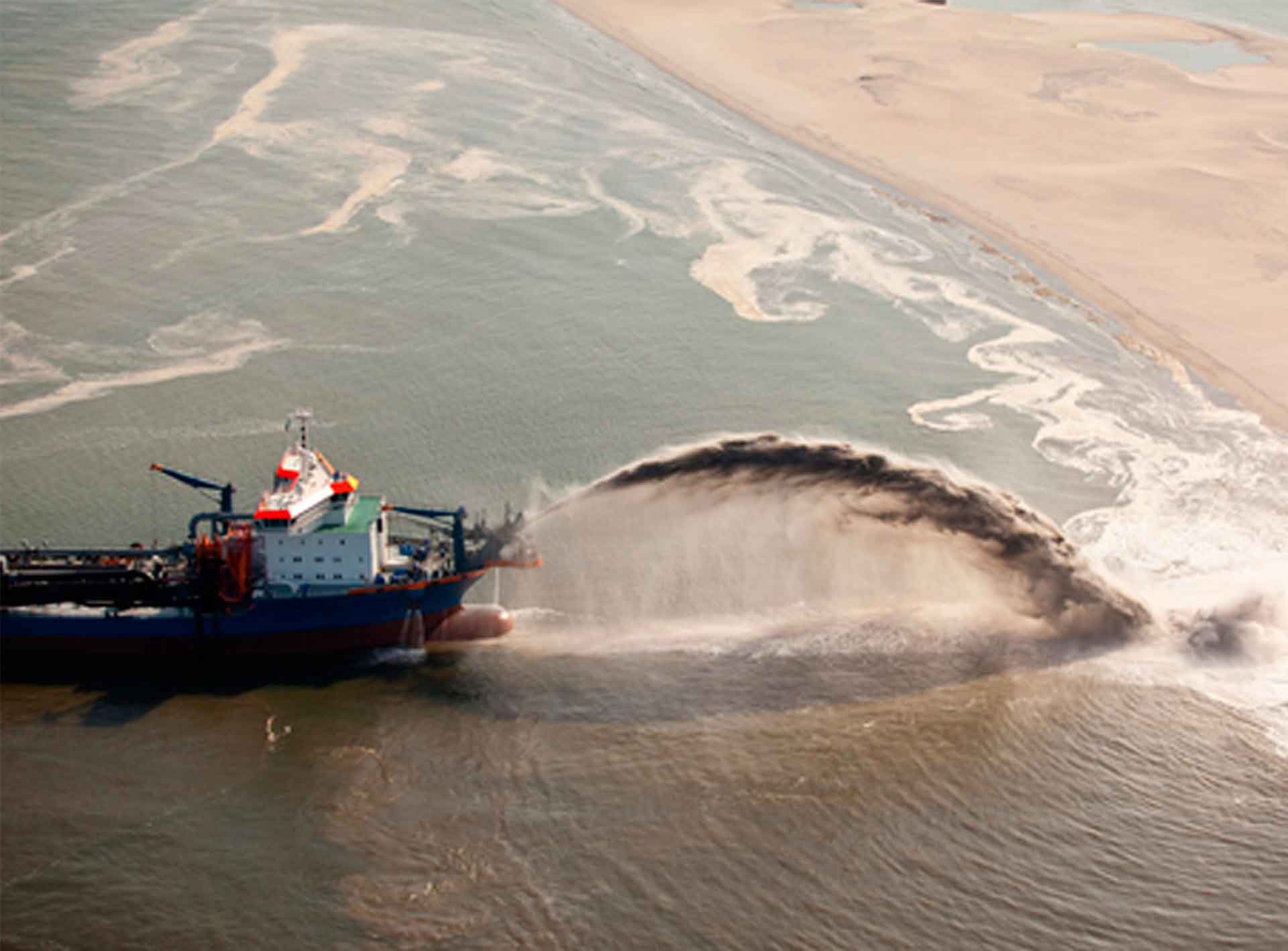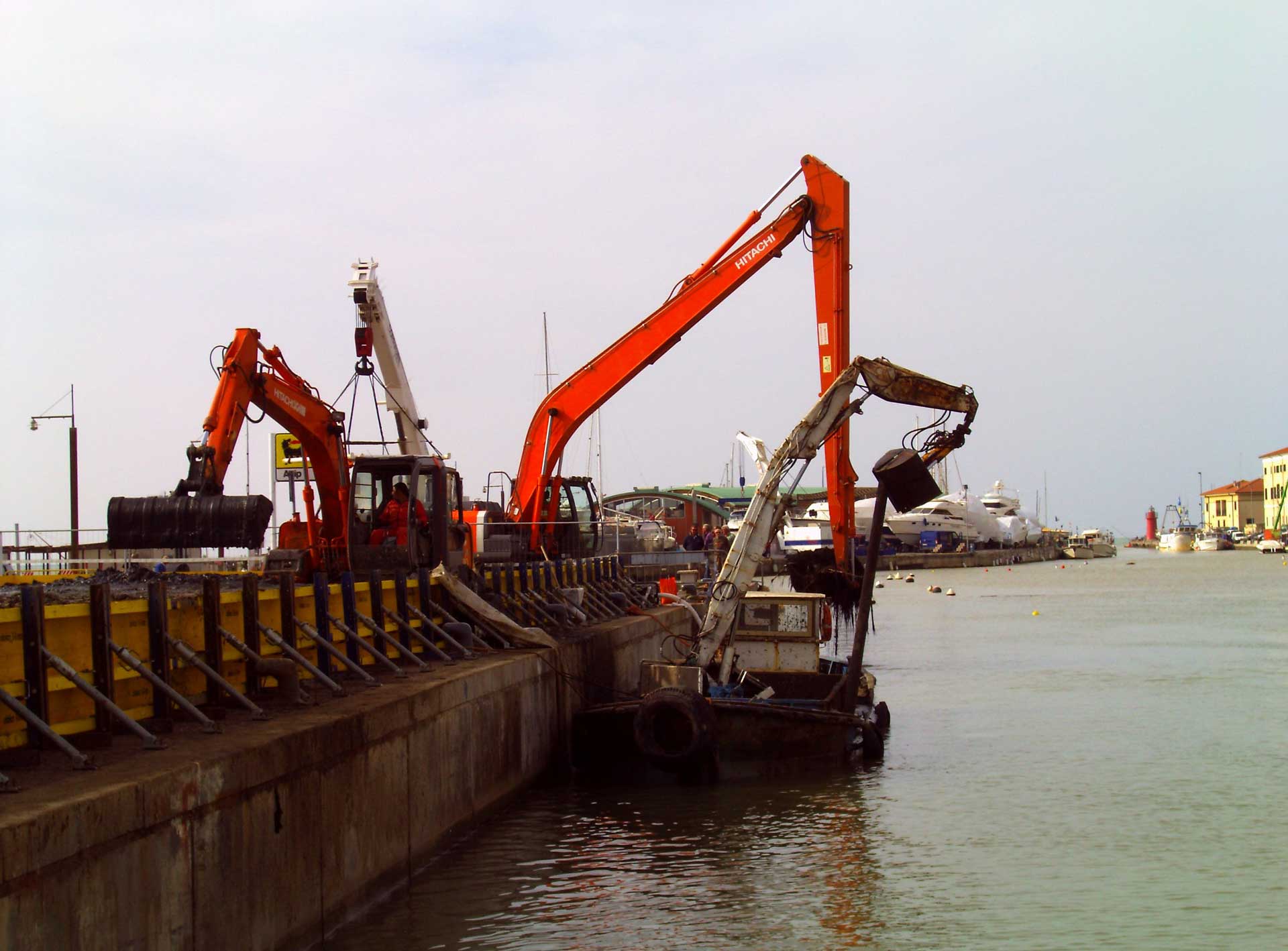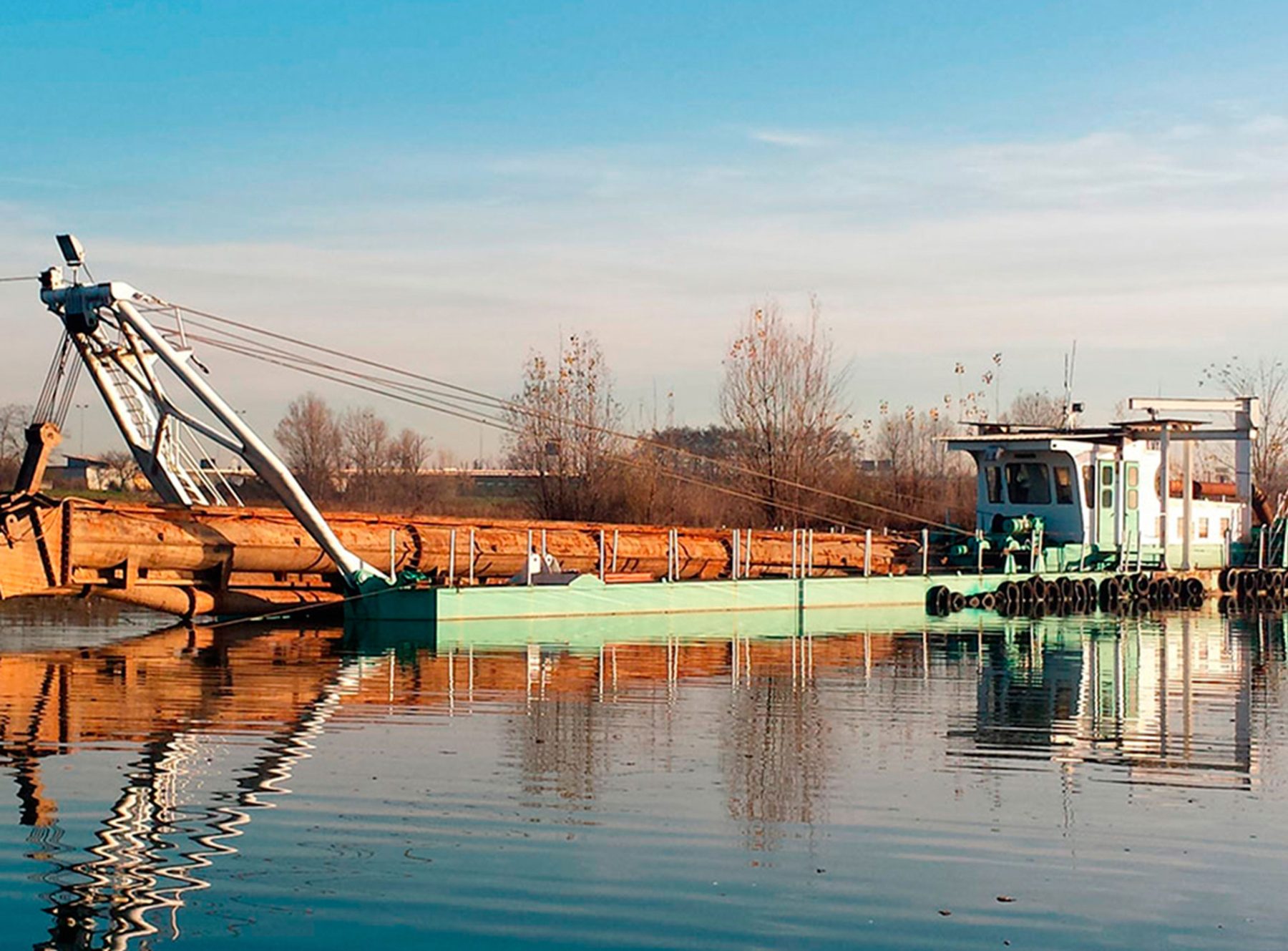DREDGING AND GEOTUBES
Advanced Dredging Techniques
Dredging is a crucial activity for the maintenance of waterways, ports, river mouths, artificial reservoirs and for the implementation of civil and environmental engineering projects. We use high precision dredgers and submersible pumps to carry out both small and large scale dredging operations. This advanced technology allows us to intervene in areas of various sizes, ensuring the efficient removal of sediment and debris. To minimize the environmental impact during these works, we adopt preventive measures to contain the spread of suspended materials and potentially harmful substances, ensuring that dredging operations are carried out with full respect for aquatic ecosystems.
Innovation in Containment and Dehydration Systems: Geotubes
As part of the treatment of dredged material, we have gained considerable experience in the use of geotextile tubes, known as geotubes. These tools represent an innovative solution for the containment and drainage of sediments. Thanks to forced filtration, geotubes allow an effective separation of the liquid-solid phases in controlled and relatively short times. This not only facilitates the recovery process of dredged material, but also makes it more sustainable. The use of geotubes stands out for its versatility and the reduced need for space on the construction site, compared to traditional filling tanks. This technology allows both small and large volumes of material to be treated with simple site adaptation and subsequent restoration interventions, offering an effective and less invasive solution for the management of dredged materials.
DREDGING AND GEOTUBES
We perform dredging work with dredgers or immersion pumps, with precision local works or dredging of large expanses of water, with the use of anti-turbidity or anti-contamination barriers if required.
We have accumulated valuable experience in the use of GEOTEXTILE TUBES for the containment and dewatering of dredging slurry: by means of forced filtration the geotube not only allows separation of the liquid-solid phases in programmable and relatively short times, it also allows the dredged material to be recovered post-treatment. This highly versatile system calls for significantly smaller work sites than conventional settlement ponds and, with moderate operations of site adaptation and subsequent restoration, it can be employed for the treatment of both small and large volumes of material.
Write Us
Contact Us
Innmare is a trademark owned by Bonifacio Srl
Piazza Vettore, 11 00141 Roma – IT
+39 06 5431343
+39 06 5431473







